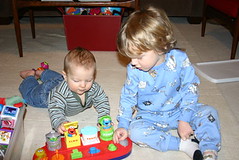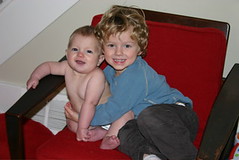I went to hear
Colson Whitehead read last night as part of the
Drue Heinz Lecture series. Whitehead is a young writer whom I've been reading, although not religiously, for some time now. His first novel, THE INTUITIONIST, is a great urban-nowhere novel, with resonances of Auster, Bellow, Ellison, Kafka, and the great New York cartoonist
Ben Katchor. The novel deals with a woman who works for the elevator-inspection authority of a large metropolis, and is both very rooted in a place and sensibility and also very nonspecific: it is clearly New York, but it isn't. His second novel, JOHN HENRY DAYS, didn't quite do it for me, although I did appreciate its ambition, its desire to explore folk tales (John Henry), historical figures (Paul Robeson), and places foreign to Whitehead (West Virginia). It was much like another failed second novel from a writer whose first novel I loved, Zadie Smith's AUTOGRAPH MAN. Since then, he's written two books--a collection of essays on New York City and a third novel, APEX HIDES THE HURT, that I didn't have any burning desire to read until last night but now have put it next on my list--and is working on a fourth novel.
Whitehead's lecture/reading was very appealing. He's just self-deprecating enough (I suppose you'd have to be if you've won a
McArthur "Genius Grant" or you'd be insufferable) and didn't read a bunch of excerpts from just one book. He read a bit from a
NEW YORK TIMES piece on the seventy-fifth anniversary of the Empire State Building, several pieces from APEX HIDES THE HURT, and a long chunk from his new novel, which he describes as autobiographical. It deals with a group of teenage boys who live in a house in Sag Harbor, Long Island, during a summer in the 1980s--the brothers' parents work in the city and only make it out to the island on weekends. This excerpt really seemed rough to me, as it was largely a nostalgic reminiscence of pop culture--and, more specific than pop culture, processed foods--of the time. I lost track of the characters or the plot as the narrator went on interminably about the qualities of Stouffer's boil-in-bag meals versus Swanson's TV dinners or the nature of
Garanimals as a source of ridicule. Whitehead's got a great sense of voice and of detail, but this just felt unedited, gushing out, and restrictive (because the more the writing was about the products of the time, the less readers who weren't teenagers in the 1980s would be interested; hell, I was a teenager in the 1980s and I quickly lost interest).
Labels: books, pittsburgh


